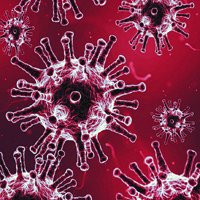My story in response to the stories of my patients’ experience of the impact of the COVID-19 pandemic: a relational psychoanalytic approach

Submitted: August 30, 2020
Accepted: November 14, 2020
Published: January 14, 2021
Accepted: November 14, 2020
Abstract Views: 1214
PDF: 540
HTML: 16
HTML: 16
Publisher's note
All claims expressed in this article are solely those of the authors and do not necessarily represent those of their affiliated organizations, or those of the publisher, the editors and the reviewers. Any product that may be evaluated in this article or claim that may be made by its manufacturer is not guaranteed or endorsed by the publisher.
All claims expressed in this article are solely those of the authors and do not necessarily represent those of their affiliated organizations, or those of the publisher, the editors and the reviewers. Any product that may be evaluated in this article or claim that may be made by its manufacturer is not guaranteed or endorsed by the publisher.
Similar Articles
- Meltem Yilmaz, Kutlu Kağan Türkarslan, Ludovica Zanini, Dilara Hasdemir, Grazia Fernanda Spitoni, Vittorio Lingiardi, Transference interpretation and psychotherapy outcome: a systematic review of a no-consensus relationship , Research in Psychotherapy: Psychopathology, Process and Outcome: Vol. 27 No. 1 (2024)
- Victoria Klimkowski, Sofia McRae, Alexia Blick, Laurence Beaulieu, J. Reese S. Handley, Anara A. Hopley, Caroline A. Hyde, Devika M. Jain, Sylvia Kolodziejczyk, Josiane Laliberté, Alexa Lévesque, Lara M. Masri, Anya M. Monet, Reagan S. Nediu, Rachel Valihrach, Giorgio Tasca, Models of practice and training in psychotherapy: cross-national perspectives from Italy and Canada , Research in Psychotherapy: Psychopathology, Process and Outcome: Vol. 27 No. 1 (2024)
- Francesca Locati, Pietro De Carli, Emanuele Tarasconi, Margherita Lang, Laura Parolin, Beyond the mask of deference: exploring the relationship between ruptures and transference in a single-case study , Research in Psychotherapy: Psychopathology, Process and Outcome: Vol. 19 No. 2 (2016)
- Johannes Pries, Alexander Niecke, Annekatrin Vetter, Ulrich Schultz-Venrath, More than one way home - Student raters' impressions of interventions and group processes in mentalisation based group psychotherapy and group analytic psychotherapy , Research in Psychotherapy: Psychopathology, Process and Outcome: Vol. 25 No. 3 (2022): SPECIAL ISSUE: "Group psychotherapy: between settled benchmarks and new horizons"
- Lucia Nuñez, Sofía Fernández, Nicolle Alamo, Nick Midgley, Claudia Capella, Mariane Krause, The therapeutic relationship and change processes in child psychotherapy: a qualitative, longitudinal study of the views of children, parents and therapists , Research in Psychotherapy: Psychopathology, Process and Outcome: Vol. 25 No. 1 (2022)
- Claudia Capella, Carolina Gutiérrez, Loreto Rodrìguez, Camila Gòmez, Change during psychotherapy: the perspective of children and adolescents who have been sexually abused , Research in Psychotherapy: Psychopathology, Process and Outcome: Vol. 21 No. 1 (2018)
- Alessandro Talia, Anna Georg, Björn Siepe, Salvatore Gullo, Madeleine Miller-Bottome, Jana Volkert, Corinne Neukel, Michael Kaess, Felix Bempohl, Sabine C. Herpertz, Svenja Taubner, An exploratory study on how attachment classifications manifest in group psychotherapy , Research in Psychotherapy: Psychopathology, Process and Outcome: Vol. 25 No. 3 (2022): SPECIAL ISSUE: "Group psychotherapy: between settled benchmarks and new horizons"
- Ying Zhang, Lili Shi, Jing Wei, Armin Hartmann , Rainer Leonhart, Markus Bassler, Kurt Fritzsche, Perceived professional development of Chinese psychotherapy trainees: a pilot study , Research in Psychotherapy: Psychopathology, Process and Outcome: Vol. 25 No. 2 (2022)
- Saryn R. Levy, Mark J. Hilsenroth, Francine Conway, Jesse Owen, Patient personality characteristics and therapeutic integration: treating borderline personality and emotionally dysregulated-dysphoric personality features , Research in Psychotherapy: Psychopathology, Process and Outcome: Vol. 25 No. 2 (2022)
- Irene Messina, Giovanna Trimoldi, Shaping psychotherapy trainees’ potential: insights from training program directors , Research in Psychotherapy: Psychopathology, Process and Outcome: Vol. 27 No. 2 (2024)
You may also start an advanced similarity search for this article.

 https://doi.org/10.4081/ripppo.2020.490
https://doi.org/10.4081/ripppo.2020.490





